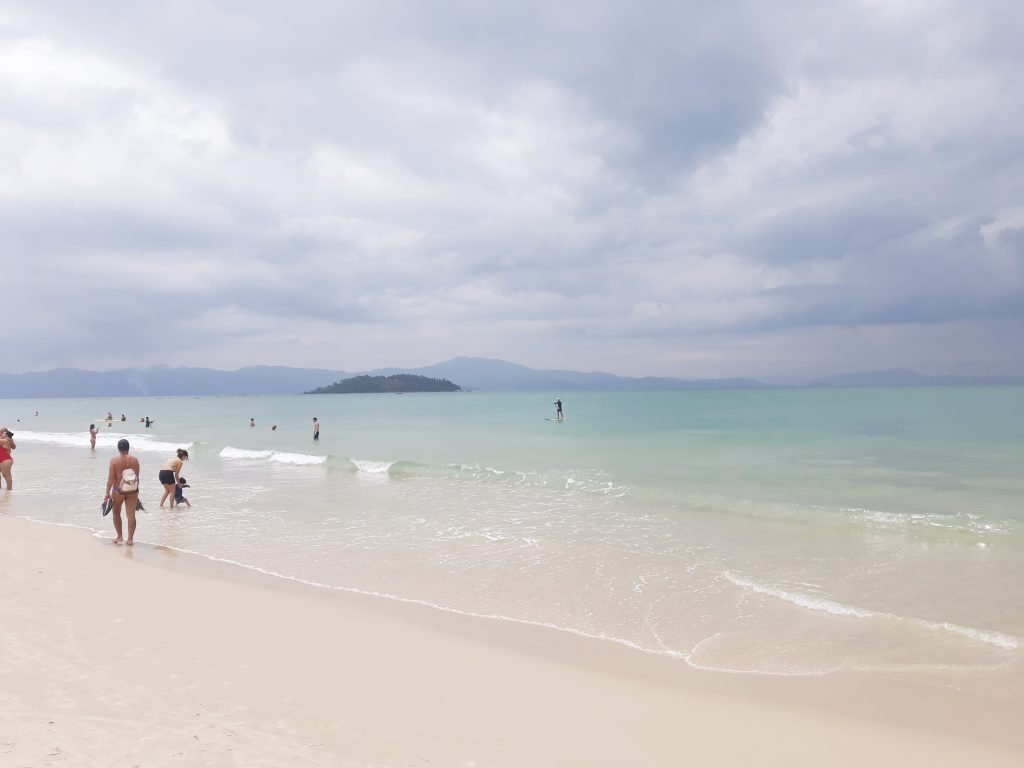Some context before jumping into the best cities to retire in Chile is necessary. For those of you dreaming of moving to or retiring in South America but worried about things like:
- violence,
- political turmoil, or
- hyperinflation
You are right to worry about those things, and I say that as a South American myself.
But not every country in South America is on the edge of chaos or authoritarianism.
There are some remarkably stable, safe, and prosperous places in South America. And the best of these places are in ONE country—a country I had the privilege of living in.

However, if you are thinking about the capital of this country… THINK AGAIN.
Today, I will show you how good and cheap retirement in Chile can be.
But NOT in Santiago.
Instead, there are 7 Chilean cities where you can live comfortably for under $1500 monthly.
These aren’t just theoretical places—they’re thriving communities where expats are enjoying spectacular views, good healthcare, and excellent quality of life for less than half what they’d spend in North America.
They are also living longer and happier too.
Why Not Santiago?

First, let me explain exactly why Santiago didn’t make the list of best cities to retire in Chile.
I lived in the Chilean capital.

It is a beautiful city, very developed, and risking to anger some of my readers, it doesn’t even look like a typical South American city. Santiago is big, is organized, has really good public transport, the streets are clean, and life in general is good. The time I spent there, I really enjoyed.
So you might be asking: WHY didn’t I include Santiago on this list then?
For 2 reasons:
The first is the cost of living: Santiago is expensive.
In fact, it is one of the most expensive cities in South America. I doubt one could live comfortably there with just US$1500 per month. It is possible to survive, and even have a decent life in some of the cheaper western districts of the city. But I would not call it a comfortable life. Many residents are adapting to the rising costs by seeking out more affordable living in 2025, moving to neighborhoods that offer lower rents and a close-knit community feel. However, this often means sacrificing certain amenities and conveniences that are more readily available in the city’s affluent areas. As the cost of living continues to rise, it becomes increasingly challenging for newcomers and even long-term residents to maintain a sense of comfort in their daily lives.
The second reason I would not put Santiago in this list is that it is just too big.
The Chilean capital has almost 7 million residents, so it is two times as big as Chicago or Houston. Such sheer size brings certain problems that are unavoidable, like traffic. Especially when it rains heavily—it is not common to have heavy rain in Santiago, but when it happened, it took twice as long for me to go back home from work.
Another issue is the pollution.
During winter, the air there is not the cleanest, far from that. Santiago is a great city if you are a professional looking for a dynamic career or a student, but not for a retiree.
In my opinion, such large cities are rarely the best places for retirees—they are good for people who want to make money, but not for those who want to enjoy the sunset with a cup of coffee. If you disagree, tell me why in the comment section, I am curious to know some pros of retirement in a big city.
So, with no further ado, let’s start our top 7 best cities to retire in Chile.
7. Puerto Varas: Lakeside Charm for Less

With just 37,000 residents, Puerto Varas is a lakeside town in Chile’s Los Lagos Region, often referred to as the ‘City of Roses’ for its distinct look. It’s located at the side of Lake Llanquihue, with alpine views carrying a European charm that draws many in.
You might assume a place with such appeal would drain your savings, but it’s surprisingly affordable.
Settling into this town means joining a friendly community where a 1-bedroom apartment costs just $530 a month. A single retiree manages monthly expenses of around $1119, including utilities at $60 for an average apartment, food expenses near $354, and transport at about $37—well within our $1500 limit.

Beyond the savings, your days could be filled with hiking trails, fishing along the lake, or embracing the calm pace of life. An interesting fact—Puerto Varas was founded by German settlers in the 19th century, and that influence remains visible in the architecture and local festivals. The town connects easily to Santiago via El Tepual Airport, just 20 km away in Puerto Montt, with flights taking under four hours.
A Chilean resident shared with us:
“Puerto Varas would be my No. 1 choice,” highlighting its appeal.
There are two downsides, though.

The first is that you should expect a lot of rain, especially outside the warm summer months from December to March, when winters get cold and snowy.
The second is that in such small town, differently than Santiago, not many people speak English, so I strongly recommend you to learn Spanish, which, by the way, is a very fun language to learn. – and there is a funnier and nicer way to learn Spanish. The method I use to learn new languages is this one (by using this link you get a 40% discount after trying for free, and if you subscribe, you’ll get a 40% discount!)
6. Concepción: Urban Life on a Budget

Home to approximately 220,000 people, Concepción is a key industrial center in Chile’s Biobío Region, packed with universities, shopping malls, and cultural hotspots. This vibrant city offers a lively urban experience that might align perfectly with your retirement goals.
In this bustling place, a 1-bedroom apartment rents for only $380 a month. Add up all your expenses, and a single retiree can live here for around $902 monthly, well under our budget.
Concepción offers solid healthcare options, a major plus for retirees. The Dr. Guillermo Grant Benavente Regional Hospital, the largest in the area, provides a wide range of services. Both public and private clinics are available, ensuring your medical needs are covered. This modern city maintains that active, city-life feel many retirees still desire.
The Universidad de Concepción, one of Chile’s top schools, keeps the vibe iengaging. Infrastructure here is robust—Carriel Sur International Airport connects you to Santiago in just over an hour, and buses take 5 to 7 hours for a cheaper ride. The local transport network makes navigating town straightforward.

A local shared with us,
“It’s a university city with a chill vibe and plenty to do, safe downtown until late.”
That said, there’s a downside to consider.

Safety can be a concern in bigger cities like this one. Petty crime, like theft, happens more often, especially in crowded spots or at bus stops after 9 pm, so staying alert is advisable.

5. Pucón: Nature’s Playground for Retirees

With a population of about 22,000, Pucón is a gem in Chile’s Araucanía Region, often called the adventure capital of the country, yet it maintains a cozy, small-town charm. Nestled by Villarrica Lake with the striking Villarrica Volcano as its backdrop, this spot screams outdoor adventure.
You might worry that a place with so much natural appeal would hit your wallet hard, but it’s actually more affordable than you’d expect.
A 1-bedroom apartment there can rent for as little as $600 a month outside the center, with total monthly expenses for a single retiree around $1290.

This covers essentials like utilities at about $128 for a decent-sized place, food costs with chicken at $6.12 per kilo, and local transportation. Pucón also offers a tight-knit community, plus endless access to lakes, volcanoes, and trails for active retirees.
Your days here could be spent hiking in national parks or simply enjoying a slower, quieter pace.
Here’s a fascinating detail—climbing the Villarrica Volcano isn’t just for tourists; it’s a local pastime, with its peak visible from almost every corner of town. For connectivity, Pucón links to Santiago via a 9-hour bus ride for $13 to $70, or seasonal flights from Pucón Airport nearby. Healthcare is reliable with facilities like CDI Pucón, rated 4.7 stars, for medical needs.

A local shared with us that Pucón’s natural beauty and activities make every day feel special. However, there’s a catch. The temperate climate brings heavy rain, especially in winter months like June to August, with up to 110 inches annually, so be prepared for wet days.
4. Valdivia: Riverside Riches at Low Cost
Valdivia, with approximately 150,000 inhabitants, is a city in southern Chile known for its waterways and strong German heritage, giving it a cultural mix you won’t find everywhere.

This place sits along multiple rivers, shaping its laid-back vibe and unique character. The German influence is visible in the old wooden buildings and local traditions, making it a standout spot for retirees seeking something different.
Regarding costs, rent for a small house there averages about $428 a month.

When factoring in food, utilities, and transport, the total monthly cost for a single retiree lands at around $939. That keeps you well under our $1500 limit, leaving space for small extras. Valdivia’s appeal goes beyond cost with its riverside walks, green parks, and events like Bierfest that celebrate its heritage. Plus, as a university town with institutions like Universidad Austral, there’s an intellectual energy that keeps things interesting.
The climate here is temperate with mild summers around 68°F in January. Winters drop to about 46°F in July, and rain is frequent, especially between May and August, with over 100 inches annually. So, a good umbrella is essential. Infrastructure in Valdivia is commendable.

Healthcare is solid with facilities like Valdivia Base Hospital for complex care and Clínica Alemana for specialized needs. Connectivity is decent too—buses to Santiago take 10 hours, or you can fly from Pichoy Airport in just over 90 minutes.
Locals appreciate the balance there.

One resident shared with us, “Valdivia is green and walkable,” highlighting how easy it is to enjoy parks and nearby nature reserves. However, there’s a downside to mention. While generally safe with low crime rates, petty theft can happen in busier areas, so staying aware is smart.
With the next city,a we start our TOP 3 of the best cities to retire in Chile.
But before, I have some really good news.
FREE FOR A LIMITED TIME: Grab your Expat Wealth & Lifestyle Compass ($108 value) today! Includes our 74-page guide of Affordable European Cities, our Zero-Tax countries report, and our expat checklist. https://bit.ly/ExpatWealthLifestyleCompass Join us here before this offer ends.

3. Villarrica: Small-Town Serenity by the Lake
Have you ever dreamed of retiring in a quiet lakeside town with volcano views, all while keeping your budget tight?
With around 30,000 residents, Villarrica is a small spot in Chile’s Lake District, offering a calm escape right in the heart of scenic beauty. This town sits near the active Villarrica Volcano, giving you a front-row seat to nature’s raw power without the chaos of larger places.
Regarding expenses, a 1-bedroom apartment in Villarrica rents for around $445 a month.

When you add up food, utilities, and transport, the total monthly bill for a single retiree comes to about $960. That’s well within our $1500 limit, leaving room for little extras. This town’s setting near national parks and lakes makes it a solid choice if you enjoy outdoor hobbies like walking or fishing.
The weather in Villarrica features a temperate climate with cool winters and mild summers. Expect a fair amount of rain, especially from June to August, which can top 100 inches yearly. So, wet days are common, and planning accordingly is wise.

For infrastructure, healthcare options include Hospital Villarrica for general needs and Clínica Alemana Villarrica for more specific care. A new hospital is also in the works, set to serve around 100,000 people in the area. Getting to Santiago takes 8 to 10 hours by bus from the local terminal, or you can drive 45 minutes to Temuco’s airport for a quicker flight.

A local shared with us that Villarrica offers a quieter life compared to nearby tourist-heavy spots, which many retirees appreciate. However, there’s a downside to note. During peak tourist seasons, petty theft can rise a bit, so keeping an eye on your belongings is a must.
2. Viña del Mar: Coastal Elegance on a Dime

Viña del Mar, with a population of approximately 330,000, is a coastal spot in central Chile often called the ‘Garden City’ for its blend of beach life and cultural offerings. This place combines urban living with the calm of the sea, making it a serious contender if you want a retirement that feels active yet relaxed. It’s not just about the location—it’s also about maintaining affordable living costs.
For expenses, rent for a 1-bedroom apartment averages $583 a month, which is reasonable for a city of this caliber.

Including food, utilities, and transport, the total monthly cost for a retiree comes to about $1274. That’s comfortably under our $1500 limit. Viña del Mar ranks high for its proximity to Santiago, strong healthcare options, and a lively scene with festivals and dining that enrich daily life.
The weather offers a Mediterranean climate, with warm, dry summers hitting the high 70s Fahrenheit and cool, humid winters. It’s pleasant most of the year, though winter brings some rain. Infrastructure stands as another strength.
The city provides efficient public transport, including buses and a metro system linking to nearby Valparaíso. Shopping centers carry international brands, and healthcare facilities like Clínica Reñaca and Hospital Clínico Viña del Mar deliver quality medical care.
Connectivity to Santiago is convenient too, with a 1.5 to 2-hour bus ride.
A local opinion shared with us stood out: “Viña del Mar might just be the most livable city in Chile.”

That said, there’s a downside to consider. Crime levels sit at a moderate 41.47 index, with property crimes and mugging being concerns at 50.82 and 48.08, respectively. Staying alert is necessary, especially in certain areas at night.
The key takeaway: Viña del Mar offers a seaside retirement with a touch of luxury, all without breaking the bank.
1. La Serena: The Best City to Retire in Chile

La Serena, home to about 200,000 people, is a coastal city in northern Chile known for its colonial architecture and laid-back way of life. Founded back in 1544, it’s one of the oldest cities in the country, and you can feel that history walking through its streets. You might assume a place with historic charm and modern perks would cost a lot, but it fits our $1500 limit with ease – and that make it the number 1 among the best cities to retire in Chile.
For cost details, a 1-bedroom apartment rents for just $477 a month. Add in food, utilities, and transport, and the total monthly cost for a single retiree comes to about $1154.

La Serena boasts a sunny climate, perfect for beach days, and its clear skies make it a top spot for stargazing. You’ve also got markets and cultural landmarks to explore. Envision a balanced lifestyle, taking coastal walks or exploring old churches, all without financial stress.
Weather-wise, expect mostly dry, sunny days with over 300 clear days a year. Summers hit the low 70s Fahrenheit, while winters stay mild. Infrastructure is solid here.
A new $278 million hospital with 673 beds is being built, offering specialized care like oncology. Travel to Santiago is easy too, with flights from La Florida Airport taking 90 minutes or buses in about 6 hours for $9 to $45.

A local shared with us about a “wave of violent home robberies” hitting the area, which is a real concern. Safety is a downside to watch. Some areas like Las Compañías or La Antena aren’t recommended, especially at night, and public transport isn’t great either.
Here’s the final surprise—La Serena delivers a fulfilling retirement with history and nature, all well under $1500.
Beyond The Best Cities to Retire in Chile
After exploring these seven best cities to retire in Chile, you might wonder about other South American options. Perhaps instead of Chile, you would rather prefer Argentina or Uruguay—one offers you lower costs, the other, tax exemptions… but which one is the best? When considering your options, it’s essential to weigh the benefits of each country carefully. For example, an in-depth retiring in Uruguay overview can provide insights into the favorable lifestyle and healthcare benefits available for expats. Ultimately, the decision will depend on your personal preferences and financial situation, so take the time to research which destination aligns best with your retirement goals. Both Argentina and Uruguay are frequently mentioned among the best countries for retirement due to their rich culture, vibrant communities, and welcoming atmosphere. Additionally, factors such as climate, healthcare quality, and cost of living play a crucial role in determining which destination may suit your retirement dreams. Exploring various aspects of life as an expat in these countries can also enhance your understanding of what to expect during your retirement years.
Levi Borba is the founder of expatriateconsultancy.com, creator of the channel The Expat, and best-selling author. You can find him on X here. Some of the links above might be affiliated links, meaning the author earns a small commission if you make a purchase.




